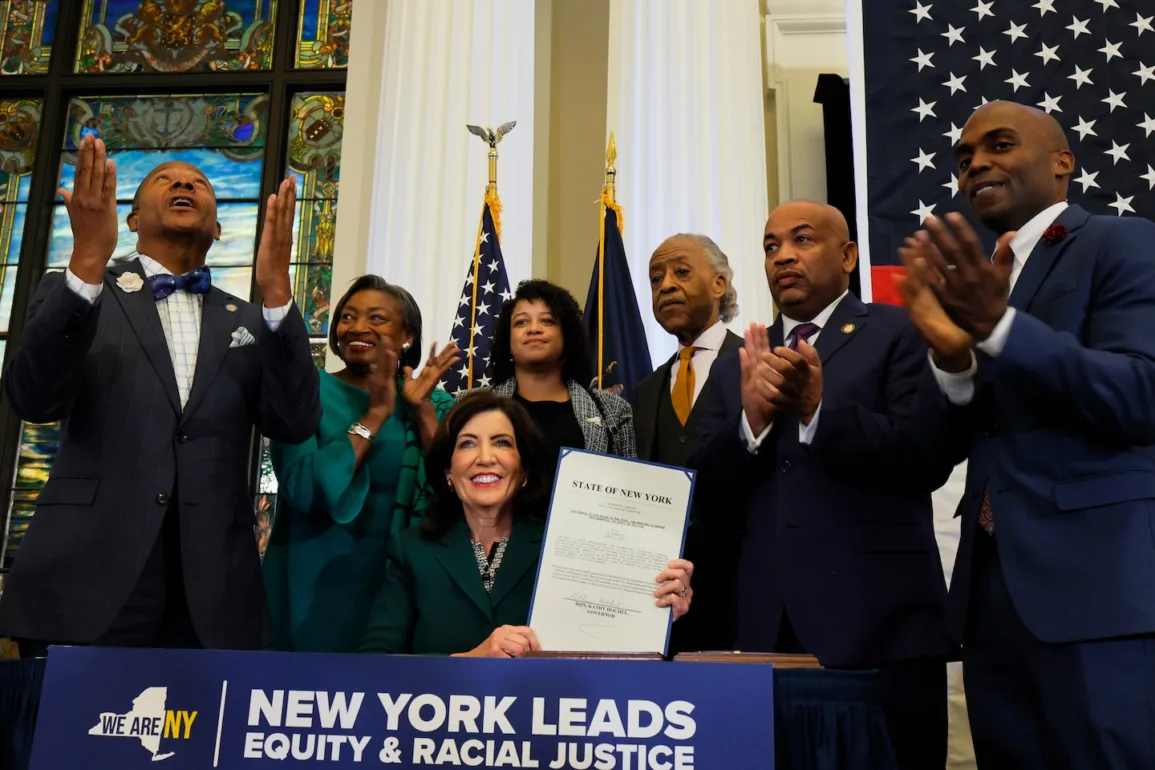New York Gov. Kathy Hochul (D) signed a bill Tuesday to create a commission that will consider reparations for the descendants of enslaved people, following in the footsteps of California and Illinois, which have similar task forces.
Speaking at the New-York Historical Society in Manhattan, Hochul described the bill as something that would be more than “a simple apology.”
Hochul said the commission would seek to spark “a candid, good-faith conversation” between those who support reparations for the descendants of enslaved people and those opposed.
“And I can think of nothing more democratic than that,” she said at the bill signing ceremony.
The measure authorizes a commission to examine the history of slavery and its legacy, the scale of the slave trade in the United States and the treatment of enslaved people. It will also investigate the extent to which the federal and state governments supported slavery, the effects of discrimination against Black people after 1865, and the negative impacts of slavery on “living people of African descent.”
The panel will recommend “appropriate ways to educate the public” and nonbinding remedies, which could include compensation, according to the bill. It must report its findings within a year after its first meeting.
Three of the commission’s nine members will be selected by the governor, three by the New York Assembly speaker, and three by the temporary president of the New York Senate. The members will not receive compensation for their services.
“We never forget we have a proud history in our harbor, the Statue of Liberty. So many impoverished immigrants sailed past it seeking a better life, including my own grandparents,” Hochul said. “And as we practice acceptance and welcome others, I think about what Dr. [Martin Luther] King said, great line. ‘We all came in different ships, but we’re all in the same boat now.’”
The U.S. government and several state governments have formally apologized for slavery despite skepticism surrounding the gesture. The U.S. Senate did so in 2009, a year after the U.S. House apologized for the enslavement and racial segregation of African Americans. States such as Virginia, Maryland, North Carolina, Alabama, New Jersey, Florida, Tennessee and Connecticut have also issued formal apologies.
The plan to provide financial compensation, though, has been more fraught, partly because it is expensive and racially complex.
California’s reparations task force has recommended billions of dollars for the state’s Black residents. But the state’s multibillion-dollar tax deficit and multicultural population — which includes people of Hispanic and Asian descent who have also historically experienced systemic racism — make the politics of reparations more complicated, The Washington Post has reported.
Evanston, a Chicago suburb that made the news by launching the country’s first government-funded reparations program for Black Americans, has faced accusations that it is falling behind on its promises of compensation.


